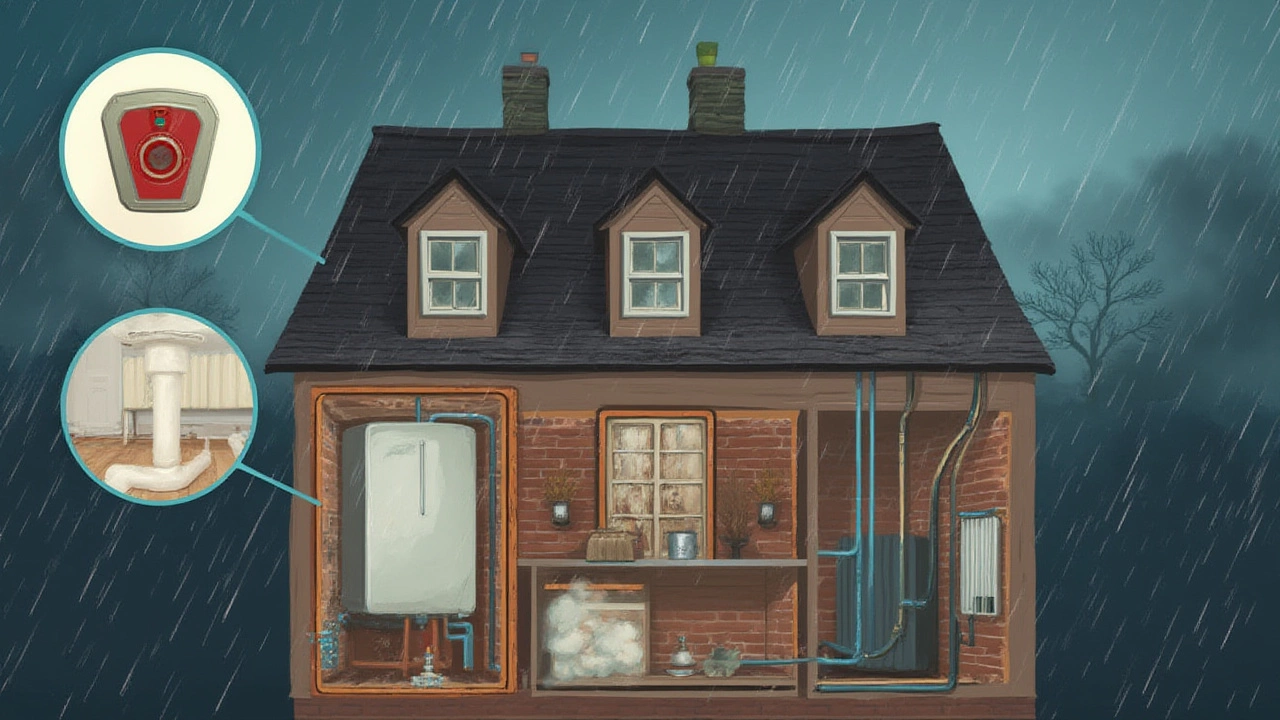Ever notice how the best things in life work quietly in the background? Your boiler is one of them—humming away, keeping your showers hot and your toes warm on those chilly nights. But when was the last time you even thought about it? Most folks don't, until something goes wrong. And trust me, when a boiler decides to throw a tantrum, things can get both uncomfortable and expensive—fast. So, just how often does this silent hero in your home need a little TLC? Let’s get right to it.
Why Boiler Servicing Frequency Matters
Think of your boiler as the heart of your home’s heating system—nobody skips their own heart checkup, right? Boilers are hardworking machines. Over a year’s use, their parts can collect dust, seals can dry out, and safety devices might lose their edge. When left unchecked, these little hiccups grow into problems that can flatten your wallet and even endanger your family. The big question: how often should you call in a pro? In the UK and across Europe, the most trusted advice is once every 12 months. That’s not a sales pitch; it’s a standard recommendation echoed by organizations like the Gas Safe Register and boiler manufacturers. In fact, if your boiler’s still under warranty, skipping a yearly service could void it instantly.
Here’s something most manuals won’t advertise: modern condensing boilers, which dominate homes since the 2000s, have intricate designs. They squeeze out every drop of efficiency, but they’re touchier than old-school models. Soot from burning fuels and minerals from water can clog up the works—impacting both performance and safety. Servicing isn’t just ticking a box; it involves checking pressure, cleaning burners, inspecting heat exchangers, and making sure all the electronics are humming along smoothly. The stats don’t lie—research from Which? Magazine in 2022 showed that serviced boilers had a 90% lower breakdown rate over five years than those left alone.
Skipping on maintenance is never wise. Carbon monoxide leaks, hidden corrosion, and failing thermostats all love an ignored boiler. Even something as basic as a blocked condensate pipe—a classic winter problem—can shut you down for days. When a qualified engineer comes around, they’re not just cleaning out dust. They’re checking for gas leaks, verifying flue integrity, balancing pressure, and catching early signs of trouble. One pro tip: always ask for a service record. This isn’t just for peace of mind—it’s needed for insurance and warranty claims if push comes to shove.
If you’re still wondering whether you can stretch it to 18 months or longer, consider this: energy bills. A boiler clogged with grime and inefficient parts burns more fuel for the same heat, hiking up your expenses. The Energy Saving Trust once estimated regular servicing can save the average UK household up to £90 a year. Now time that by a few years—and suddenly, a £90-120 service fee doesn’t look too bad.

Recognizing Signs Your Boiler Needs Immediate Attention
What if your boiler starts acting up before the next annual check? There are red flags you shouldn’t ignore. Weird noises—clanking, hissing, or persistent whirring—often mean a pump is failing or air is trapped in the system. If you notice yellow flames instead of blue, that’s a huge alarm bell. A yellow flame signals incomplete combustion, risking deadly carbon monoxide leaks. Get a pro in—now. Cold radiators when the thermostat claims everything’s fine, sudden pressure drops, or unexplained puddles near your boiler are other symptoms you need to treat with urgency.
Boilers shouldn’t smell. If you catch a whiff of something odd—like burning, or a faint rotten egg scent (which usually indicates a gas leak)—turn it off, open a window, and ring for emergency help. Don’t try to fix it yourself, unless you fancy ending up as a case study in what not to do. Take it from the UK’s Health & Safety Executive: “Unqualified repairs are the second most common cause of domestic boiler accidents.” Harsh but true.
Smart boilers are becoming common, and they help by flashing error codes or sending alerts to your phone. While these codes point out where to look, don’t try to guess your way through a reset if you’re not sure. Write down the code and call a qualified engineer. Regular servicing includes checking these electronics too—software and sensors can have bugs, just like any gadget.
One overlooked sign is the age of your boiler. If you’re relying on an old unit installed more than 10–15 years ago, yearly servicing should be the bare minimum. Components wear out and replacements can become scarce. Even with regular TLC, an old boiler is more likely to misbehave. Consider budgeting for a replacement, as many manufacturers update safety and performance standards every decade. Newer models are not just safer and more efficient—they’re quieter and smarter, making life easier and bills lower.
Just for fun—and a bit of perspective—here’s how common these issues are. According to a 2023 survey of UK households by HomeServe, 23% of call-outs were for boilers under 5 years old that hadn’t been serviced, and 48% of emergency gas calls in winter were linked to neglected units. No one likes the idea of being the one in four stuck with ice-cold showers while the rest of the world wakes up warm. A little prevention goes a long way.

Essential Boiler Maintenance Tips and Scheduling Advice
We all love a good tip that actually works, so don’t let your boiler fade into the background—put its yearly service on your calendar, just like a dentist appointment you can’t miss. Best time? Try to schedule a boiler service in late summer or early autumn. This gives you a clear edge: engineers are less booked, parts are in good supply, and you avoid the rush that hits just as the first cold snap rolls in.
If you rent, don’t skip this next part: under the Landlord and Tenant Act 1985 (UK), landlords must arrange annual gas safety checks (which includes most boilers) and provide a Gas Safety Certificate. As a tenant, you should see proof that this check was done yearly. Homeowners are on their own, but here’s a practical step—set a reminder on your phone, write it on your calendar, or ask your boiler insurance provider if they send reminders. Many now do. Some manufacturers bundle annual servicing into extended warranty deals, so check your paperwork.
Let’s break down what happens during a pro boiler service, so you know it’s not just a “quick once-over.” A certified technician will:
- Inspect gas pressure and flow
- Test flue emissions and safety devices
- Check for leaks, corrosion, and limescale
- Clean heat exchangers and burners
- Examine piping, valves, and electrical connections
- Calibrate the thermostat
- Log service details for your records
If you want to keep your boiler happy between services, try these homeowner-friendly tips:
- Bleed your radiators at least once a season to release trapped air
- Check your boiler’s pressure gauge occasionally (should typically sit between 1 and 2 bar)
- Clear away clutter from around your boiler—airflow matters
- Keep the area dry and clean
- Don’t store flammable stuff nearby
- If you notice any errors or warnings, don’t wait to investigate
And for those who love numbers, here’s something concrete. Check out this simple table summarizing servicing frequency and breakdown risk:
| Boiler Age (Years) | Annual Service? | Breakdown Rate (per 100 units/year) |
|---|---|---|
| 0-5 | Yes | 3 |
| 0-5 | No | 18 |
| 6-10 | Yes | 7 |
| 6-10 | No | 29 |
| 11+ | Yes | 20 |
| 11+ | No | 55 |
One last thing—don’t just take my word for it. Here’s a quote worth taping to your fridge, from the Energy Saving Trust’s Adam Scorer, as published in Which? in January 2023:
“Having your boiler serviced every year is the simplest way to make sure it runs efficiently, avoids nasty breakdowns and, most importantly, keeps your family safe from carbon monoxide.”
If your boiler’s overdue for a check, now’s the time to add it to your list. You might not throw it a birthday party, but it definitely deserves a yearly once-over—your comfort and safety depend on it. These tips help you avoid drama, save some cash, and keep the hot showers coming. Never underestimate a well-serviced boiler—it’s the unsung hero that keeps the cold at bay.
